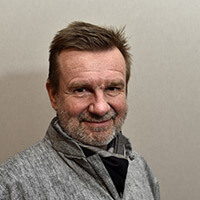Visitors to Urwerk’s presentation alongside the Salon International de la Haute Horlogerie were greeted by Felix Baumgartner in a bright red corduroy suit with shoes to match. An outfit that won him no end of compliments, and which went well with the original approach to Fine Watchmaking that was evident in the timepieces on display. Interview.
Felix Baumgartner: We made our debut at Basel fifteen years ago with the Académie Horlogère des Créateurs Indépendants. As a young, third-generation watchmaker and well-versed in the history of time measurement and its complications, it seemed to me the watches I saw in museums were so much better than anything currently being made. I couldn’t bear the thought of spending my entire life reproducing what others had done before me.
Myself, Martin Frei and my brother spent hours discussing possible new values in watchmaking. How we could bring an innovative architecture to telling time that would be retro, contemporary and futuristic rolled into one. We went looking for ideas in all kinds of places, from 1960s and 70s Russian space technology to a Campanus night clock from 1652 which gives time in a highly original fashion. Our aim was to indicate the passing of time in an innovative way, using modern technologies and materials. From these beginnings, we’ve now reached an equilibrium with annual production of 150 to 200 watches while continuing research into innovative solutions. As it stands, I think we’re the only ones to offer this blend of design and technique; a combination which hasn’t varied in fifteen years.
I still find it hard to believe we were chosen by a panel of judges who ten years ago couldn’t stand us. Yes I was pleased, but I’m still amazed by such a change of heart. Ten years ago, we were outcasts.
We just launched a major timepiece, the UR-1001. It’s an extremely significant piece for Urwerk as it condenses our fifteen years of existence. It’s a grande complication with a revolving satellite annual calendar, revolving satellite hours and retrograde minutes, plus day/night, power-reserve and “oil change” indicators. It’s anything but a traditional pocket watch and clearly shows what we are capable of developing. Our other focus is production of the UR-110, our latest model which is doing well. We feel comfortable with this new movement.
From the first sketches to the prototype, around two years. The UR-1001, which is a far more complex project, took four years.
We’ve had one experience of production rising to 250 pieces but we were beginning to feel the strain of delivering on time. With production of 150 to 200 watches, we have financial stability and return on investment. We launch a new model every two years. We have to take care to stick to this schedule, otherwise we’d just keep pushing perfectionism as far as we can and never produce anything. Urwerk is a team of fifteen people, divided between Geneva and Zurich, who organise their working day to suit them and where there is no such thing as hierarchy. At the end of the day, Fine Watchmaking is about people and responsible watchmakers, especially when you produce virtually every part in-house, balance-spring included.


















